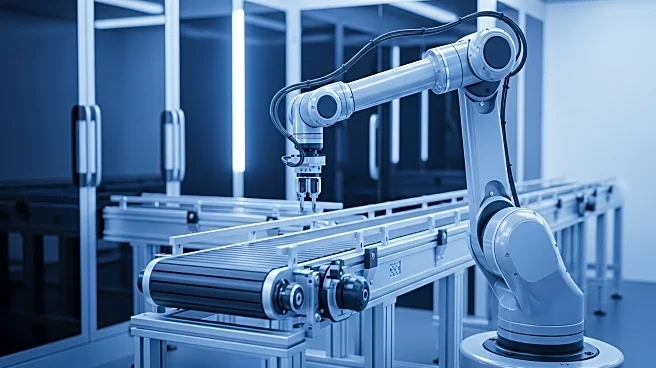What's Happening?
Manufacturers are increasingly investing in AI and automation to boost business and attract skilled talent. However, they face challenges in transitioning employees who may be skeptical of technological changes. A roundtable discussion highlighted the need for manufacturers to rethink workforce strategies to avoid being left behind. The industry is experiencing a shift towards roles like AI engineers and digital supply chain analysts, and companies are encouraged to engage employees in the design and implementation of AI projects to build trust and ensure successful adoption.
Why It's Important?
The integration of AI and automation in manufacturing is crucial for maintaining competitiveness and addressing challenges such as technological disruption and cybersecurity risks. By transforming workforce strategies, manufacturers can attract talent with the necessary skills for the future. This shift not only enhances operational efficiency but also improves the industry's image, making it more appealing to potential employees. The successful adoption of AI can lead to significant gains in productivity and innovation, positioning manufacturers for long-term success.
What's Next?
Manufacturers are expected to continue developing AI strategies, focusing on pilot projects to validate the impact of technology and build momentum for scaling. Engaging employees in the process will be key to overcoming skepticism and ensuring seamless collaboration between human and AI capabilities. As the industry evolves, manufacturers will need to offer compelling career paths and foster a culture of continuous learning to attract and retain talent. The focus will be on creating a workforce that is equipped to handle the demands of smart manufacturing.









